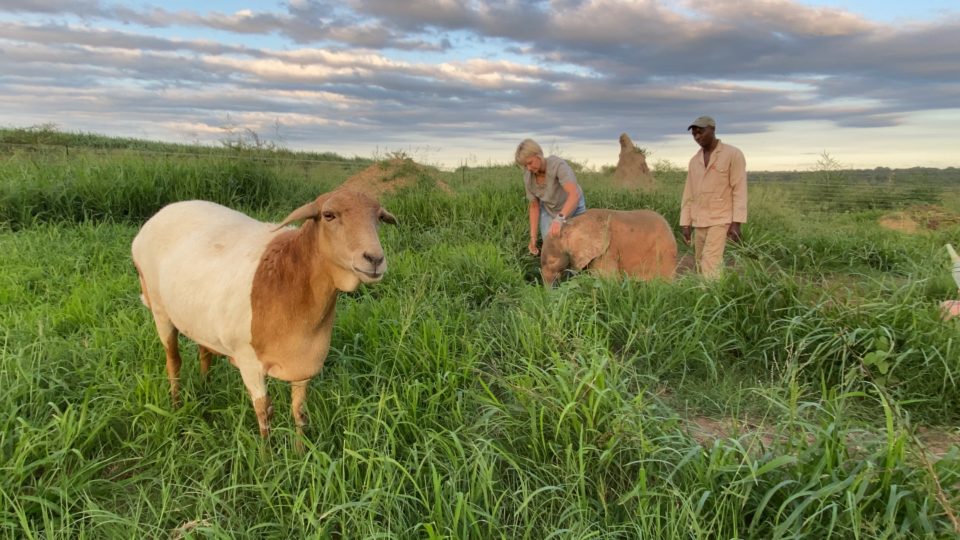Lammie is the sweet surrogate superstar at the orphanage, who has given Khanyisa attentive company, warmth and joy since the little albino orphan first arrived at HERD in January this year.
Lammie the Legend, we call her, for her love and patience and loyalty know no bounds. Born in 2014, she has been a friend to rhino and elephant and human alike, and although we tried, not so much to over-zealous German Shepherds named Nandi.
Lammie’s thick woolly pure-bred Pedi sheep coat saw her through the cold temperatures of the winter months in our part of South Africa, but the heat of summer has returned. Usually Lammie receives a shearing about once a year and the time soon came recently for this annual event. We started off with a half shear and left the longer tufts on top of her body while the weather was changing.
Khanyisa became quite fond of tugging at Lammie’s growing dreadlocks. So without doubt, the precious sheep extraordinaire was due for a haircut!
Usually a professional shearer comes to attend to Lammie, but Adine and carer Herman needed the job done quickly, after a day of walking with Khanyisa and the Jabulani herd in the reserve wilderness.
Watching sheep being sheared is not always pleasant and the process requires a strong arm and still hand, but Lammie stood calm and content while getting her pampering snip, perhaps happy to see the back of her woolly, well, back.
She is sure to enjoy the warmer weather much better now, but Pedi sheep are in fact very hardy animals and well-adapted to the African climate.
This unique breed of sheep is found throughout southern Africa and originates from the Venda region in the north of South Africa. Pedi sheep are adapted to a harsh environment and can tolerate various stressful circumstances. They can walk far, as Lammie’s trots to the dam with Khanyisa in the beginning of the calf’s rehabilitation showed. They have fine frames and Lammie, being an ewe is smaller and more feminine than her masculine ram counterparts.
Pedi sheep are also very resistant to the usual diseases and parasites that can plague other sheep across the globe. They’re not fussy eaters, are intelligent and take to a routine with ease and speed.
Ewes like Lammie also make excellent mothers and as seen with little Khanyisa, this motherliness extends to animals outside of their species.
And yes, Lammie’s tail is not normal, not at least when compared to other sheep. But this is a typical Pedi sheep trait. The tail holds a lot of fat and is typically wedge-shaped, broad at the base, narrowing to the tip – looking somewhat like the trunk of an elephant. How fitting…
This fat storage is very handy (taily) as it provides the sheep with extra fuel when needed, such as through lambing. This is very different to modern European breeds that don’t store fat and rely purely on the food they take in each day. But Pedi sheep are built to survive, they are tough, and yet, so tender…
Watching Lammie playing with Khanyisa may look like the little sheep has bitten off more than she can chew now that her roommate and companion is growing taller and taller. But Lammie has perfected the headbutt and hoof-gallop.
We are so grateful for the friendship sweet Lammie has provided Khanyisa as well as our carers and team.




 Comment
Comment






